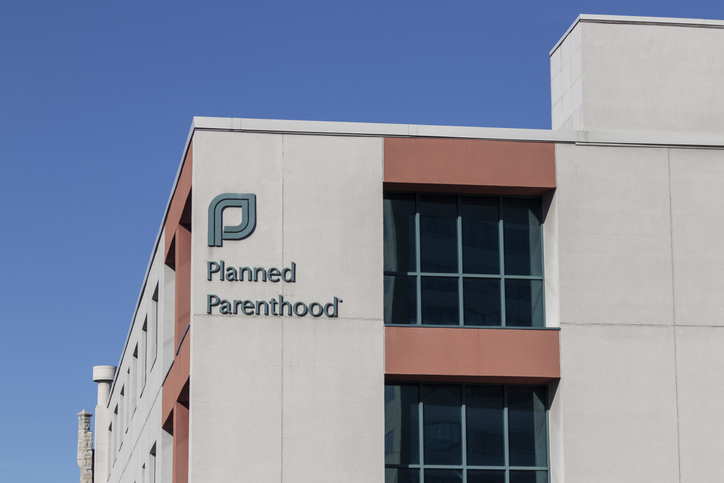The U.S. Supreme Court heard arguments on April 2 over whether federal law allows states free to select which medical providers they want to fund in their Medicaid programs.
In Medina v. Planned Parenthood South Atlantic, South Carolina defended its right to reject Medicaid vendors who provide abortions elsewhere in the nation, which the state bans after six weeks’ gestation.
The Alliance Defending Freedom (ADF), representing South Carolina, argued the state should be free to direct Medicaid tax dollars to vendors that most benefit low-income women.
Abortion Emphasis
In a news conference after oral arguments before the Court, ADF Senior Counsel John Bursch said Planned Parenthood is not a typical Medicaid provider.
“Planned Parenthood is a multibillion-dollar organization dedicated to providing abortions and dangerous gender-transition drugs, not comprehensive health care,” said Bursch.
“According to its own reporting, Planned Parenthood performs between one-third and two-thirds of all abortions in the United States annually, while its provision of other medical services declined,” said Bursch. “Between 2022 and 2023, preventative care visits fell 31 percent, and the number of patients seen annually has fallen by 60 percent since the 1990s. Meanwhile, cancer screening and prevention services have dropped by 71 percent since 2010.”
Planned Parenthood has argued the Medicaid Act gives patients a “privately enforceable right of action,” a right to sue, to get care from the qualified provider of their choice.
Language Debate
The arguments, lasting about 90 minutes, focused mainly on the “privately enforceable right” issue.
“The fact that the 12 of us can have such a robust conversation about whether this statute is mandatory or not, whether it’s rights-creating or not, demonstrates that the rights-creating language is ambiguous, not clear and explicit,” said Bursch in his arguments.
“The Justices seemed to get the point that we were making, which is that Congress creates rights enforceable in federal court only when it uses clear, explicit language in the statute, and that the provision that we’re talking about today simply doesn’t have that,” said Bursch in the news conference.
It appeared Justices Amy Coney Barrett and John Roberts shared that view, Bursch told the press. Those two Justices often serve as swing votes in the Court’s decisions.
A decision is expected sometime by June.
Political Pressure Funding
Arguing South Carolina’s decision is justified, Bursch cited for the press a New York Times article that described Planned Parenthood as being under fire for botched care (see opposite page) and distributing more than $899 million to local affiliates for activities other than medical services.
“Much of it went instead to pro-abortion politicking and legal support,” said Busch. “Planned Parenthood’s own leaders say they have repeatedly prioritized the political fight for abortion over supporting their affiliates that are supposed to be providing care for women. In sum, Planned Parenthood’s leadership has openly prioritized abortion activism over maintaining its facilities and offering essential health care for low-income patients.”
Hiding from Hyde
Medicaid has been a way for Planned Parenthood to avoid the Hyde Amendment, which prohibits the use of federal money to fund abortion, says Genevieve Marnon, legislative director for Right to Life of Michigan.
“Tax dollars that Planned Parenthood receives for Medicaid-eligible services such as STI (Sexually Transmitted Infections) testing and treatment and contraceptive prescriptions are used to shore up their abortion business,” said Marnon.
“Medicaid patients and abortion patients use the same building, the same equipment, and are seen by the same staff,” said Marnon. “While Medicaid money can’t be used for abortions due to the Hyde Amendment, it can be used to pay for rent, salaries, utilities, and equipment, which allows Planned Parenthood to profit from their abortion activities.”
Questionable Definition
Although arguments avoided the abortion issue, it raises the question of whether abortion is really health care, says Marnon.
“The Merriam-Webster definition of ‘healthcare’ is ‘efforts made to maintain, restore, or promote someone’s physical, mental, or emotional well-being especially when performed by trained and licensed professionals,’” said Marnon. “Abortion neither restores nor promotes physical, emotional, or mental health of women. On the contrary, abortion often hurts women both physically and mentally, and it always kills an unborn child.”
Marnon cites her home state of Michigan as an example.
“In Michigan, abortion complications spiked 38 percent in the year after the removal of abortion clinic health and safety standards, and a recent study showed women were twice as likely to attempt suicide following an abortion,” said Marnon. “Pregnancy is not an illness, and terminating the life of an unborn baby is not health care.”
Choice Decision
States have a right to choose not to fund Planned Parenthood through Medicaid, says Rep. Chris Smith (R-NJ), co-chair of the House Pro-Life Caucus. Smith has filed three amicus briefs as the case has worked its way through the courts.
Once South Carolina chose not to provide Medicaid funding to Planned Parenthood in 2018, the organization “immediately took to the courts to try to block South Carolina’s right to administer the Medicaid program and not subsidize organizations that pay for elective abortion,” said Smith in a press release on April 2.
Smith says Medicaid is Planned Parenthood’s largest federal funding source, providing $1.5 billion in reimbursements nationwide over three years.
“The multibillion-dollar abortion industry cleverly markets the sophistry of choice while going to extraordinary lengths to ignore, trivialize and cover-up the battered baby-victim,” Smith stated. “However, the truth is that the child decapitation, dismemberment and starvation that occur at Planned Parenthood is not health care.”
AnneMarie Schieber ([email protected]) is the managing editor of Health Care News.




